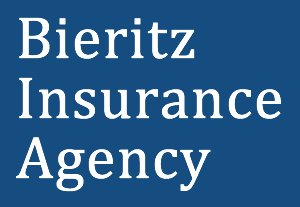Protecting Your Loved Ones (Life Insurance Awareness Month)
Life Insurance – Do It for Love!
 It’s called Life Insurance, but it could just as easily be labeled Love Insurance. Buying life insurance is really an expression of love. It lets loved ones know that you care so much that you’ve made plans to provide for their well-being…even after you’re gone.
It’s called Life Insurance, but it could just as easily be labeled Love Insurance. Buying life insurance is really an expression of love. It lets loved ones know that you care so much that you’ve made plans to provide for their well-being…even after you’re gone.
So if protecting the ones you love is important to you, please spend a few minutes reviewing the information available at https://lifehappens.org/life-insurance-101/. You’ll learn information about who needs life insurance as well as a few tools to help you determine how much and what kind of life insurance might be right for you.
There are many kinds of life insurance, but they generally fall into two categories: term life insurance and permanent insurance. A short overview of these is provided below.
Term Life Insurance
Term Life is the most affordable type of insurance when initially purchased, is designed to meet temporary needs. It provides protection for a specific period of time (the “term”) and generally pays a benefit only if you die during the term. It is often a good choice for people in their family-formation years, especially if they’re on a tight budget, because it allows them to buy high levels of coverage when the need for protection is often greatest.
Term insurance is also a good option for covering needs that will disappear in time. For instance, if paying for college is a major financial concern but you’re pretty sure that you won’t need life insurance coverage after the kids graduate, then it might make sense to buy a term policy that’ll get you through the college years. If you buy a term policy only to realize at the end of the term that you still have a need for life insurance, the good news is that many policies will give you the option to renew your policy. The bad news is that you may face higher costs since age is one of key factors used to determine life insurance premiums. If your health has deteriorated significantly, you may find that coverage is no longer affordable. So if you’re considering a term policy, make sure you carefully consider how long you’ll need the coverage. If you’re pretty sure that your needs are temporary, then term insurance is probably the right choice. But if you think there’s a possibility that you might need the coverage for a long time, then you might want to include some permanent life insurance in your financial plans.
Whole Life Insurance
Whole life insurance provides lifelong protection, and the ability to accumulate cash value on a tax-deferred basis. Unlike term insurance, a permanent insurance policy will remain in force for as long as you continue to pay your premiums. Because these policies are designed and priced for you to keep over a long period of time, this is probably the wrong type of insurance for you if you don’t have a long-term need for life insurance coverage.
Why would someone need coverage for an extended period of time? Because contrary to what a lot of people think, the need for life insurance often persists long after the kids have graduated college or the mortgage has been paid off. If you died the day after your youngest child graduated from college, your spouse would still be faced with daily living expenses. And what if your spouse outlives you by 10, 20 or even 30 years, which is certainly possible today. Would your financial plans, without life insurance, enable your spouse to maintain the lifestyle you worked so hard to achieve? Another key characteristic of permanent insurance is that it includes a savings component, often referred to as “cash values.” These accumulate on a tax-deferred basis just like assets in most retirement and tuition savings plans, and can be used in the future for any purpose you wish. If you like, you can borrow cash value for a down payment on a home, to help pay for your children’s education or to provide income for your retirement. When you borrow money from a permanent insurance policy, you’re using the policy’s cash value as collateral and the borrowing rates tend to be relatively low. And unlike loans from most financial institutions, the loan is not dependent on credit checks or other restrictions. You ultimately must repay any loan with interest or your beneficiaries will receive a reduced death benefit and cash-surrender value.
It’s impossible to say which type of life insurance is better because the kind of coverage that’s right for you depends on your unique circumstances and financial goals. Often, a combination of term and permanent insurance is the right solution. If you have questions on life insurance, please contact our team for more information and we’ll be happy to help. You can reach us in Cooperstown at 607-547-2951.

